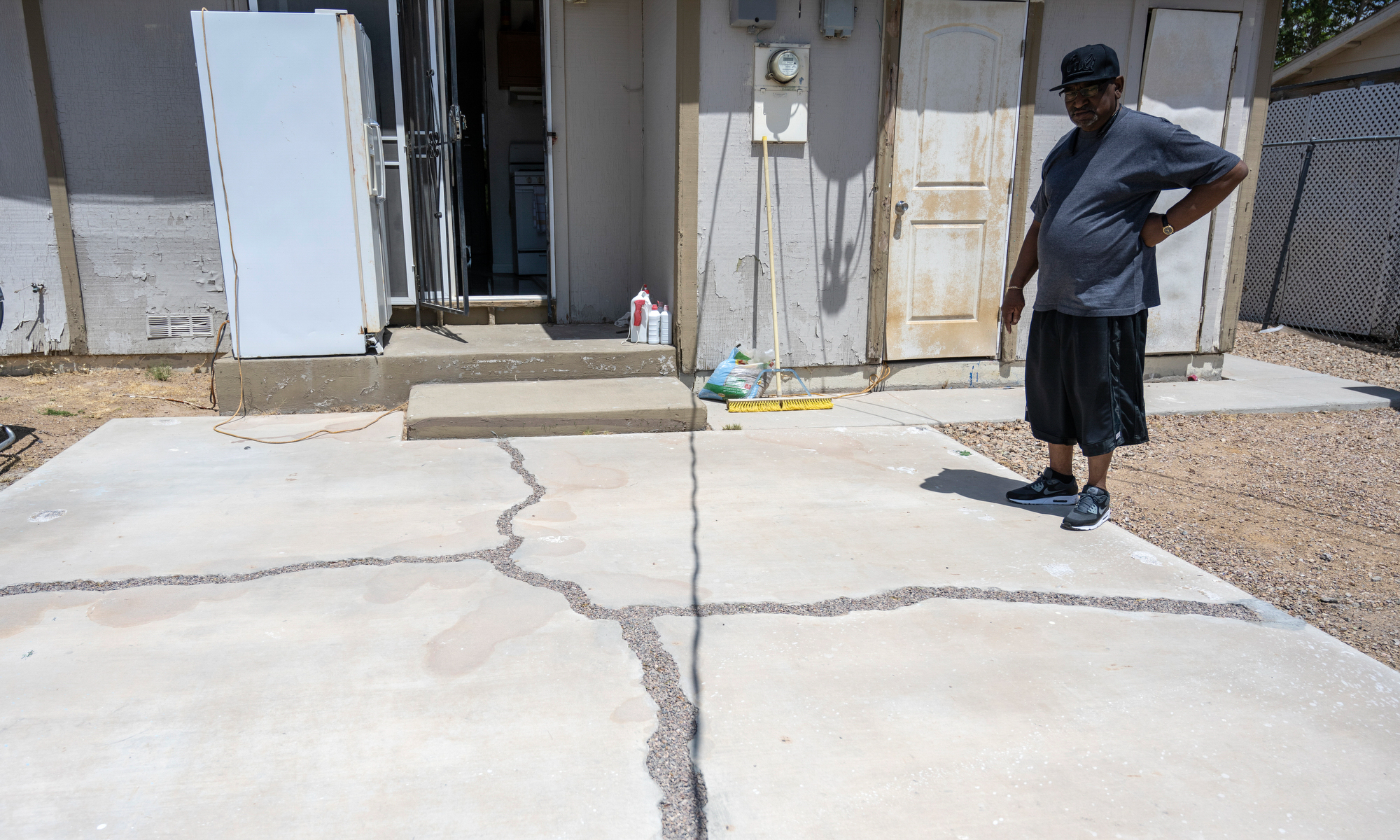The historically Black North Las Vegas community that was built over an aquifer and geological faults — and redlined for decades — will be converted to a state park after the 93 remaining residents relocate to new single-family residences with financial assistance from the state.
Developers interested in building replacement homes have until 5 p.m. on Nov. 15 to submit proposals on a thumb drive to the Nevada Housing Division.
Funding was authorized through the Windsor Park Environmental Justice Act, SB450, sponsored by Sen. Dina Neal (D-North Las Vegas) during the 2023 legislative session. It allocated $12 million to the state housing division and applies $25 million in federal coronavirus relief dollars to the purchase and development of land to relocate residents from the hazardous community.
The law went into effect July 1. The millions of dollars coming from the American Rescue Plan to the state must be spent by December 2026, and the general fund dollars must be spent by June 30, 2025.
Those anticipating developing the residences must submit their proposals and supporting documents to Mae Worthey-Thomas, the deputy administrator for the Nevada Housing Division, by the November deadline. Applicants must have experience building single-family developments.
“They want to maintain their sense of community. They have known each other for decades,” Worthey-Thomas said of residents at a Windsor Park Request for Proposals public meeting Monday. “And basically this is an opportunity for there to be a do over, where they get a chance to have the community that they thought they were getting … in the first place.”
The formerly segregated neighborhood built between 1964 and 1966 has been described as a “Black Summerlin” when back in its heyday, but in the 1980s the hilly community overlooking the Las Vegas Strip became unsafe from subsidence — a sinking of the ground because of groundwater overuse. It has remained that way ever since.
The area became off limits to structural repairs because of ordinances passed in the late 1980s, leaving the community blighted, with collapsing sidewalks and empty lots that residents said accumulated trash and invited illicit activities.
Residents told The Nevada Independent they received an unfair deal from the city of North Las Vegas to relocate. They said at a press conference last month that after years of hard work, they did not want to accept $50,000 to $100,000 grants in return for having their paid-off homes, some with “million-dollar views,” reduced to rubble.
The Windsor Park Environmental Justice Act is intended to make sure the community is not forgotten even when residents move out, requiring that the land revert to a state park that will memorialize the neighborhood. It also requires that home lots for the new residences — which could be built nearby — must match the size of the Windsor Park lots, which are more than 6,000 square feet.
“There are some discrepancies about the exact number of homes. We’re going to go with 93,” Worthey-Thomas said. “It’s very difficult to know whether or not everyone will feel confident in this particular offer. They have been in their homes for so long that some people are a little hesitant.”
She said a developer will be chosen based on a scoring system overseen by an advisory committee arranged by the housing agency. She said scores will be aggregated and points will be given to projects based on the developer’s experience, organizational diversity and the diversity of subcontractors.
Part of the minimum qualifications include a timeline for completion of the project and a rendering of the design concept. Special considerations will also go to developers who hire contractors who are residents or former residents in Windsor Park.
The RFP, or request for proposals, states that the successful applicant will enter into an agreement with the housing division, and the agency has “the sole discretion and reserves the right to reject any and all responses received with respect to this RFP and to cancel the RFP at any time prior to entering into a formal agreement.”
Worthey-Thomas said developers are required to provide three to four choices of homes for residents in Windsor Park to choose from. If developers believe their project will take more funds, the housing division will seek more dollars if necessary.
“We look to you to create a plan that’s going to be the most convenient way of selecting a home, that makes the most sense,” she said. “Because we understand we can’t build 93 custom homes, but I think the majority of the homes are pretty much going to be the same design.”

